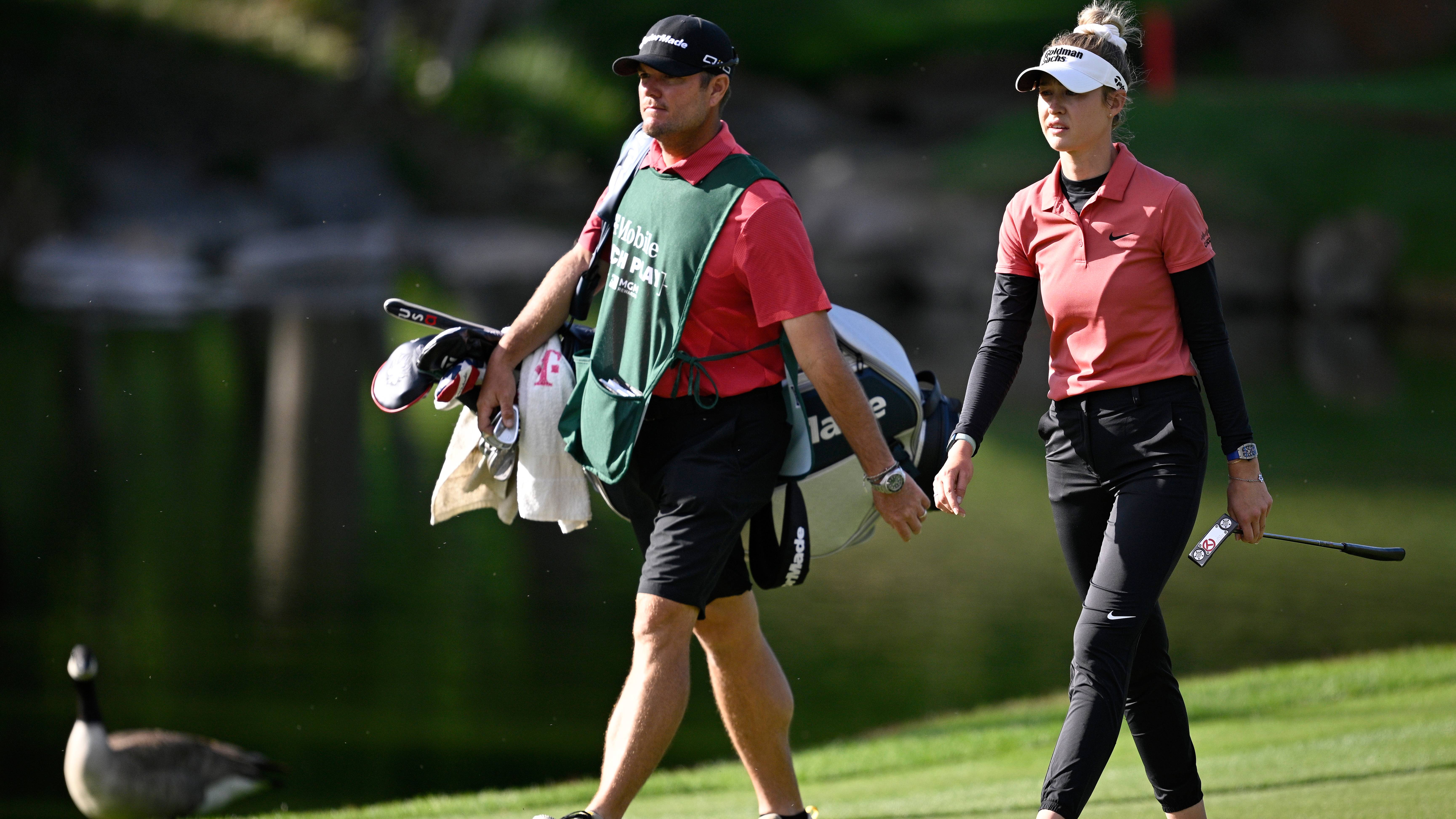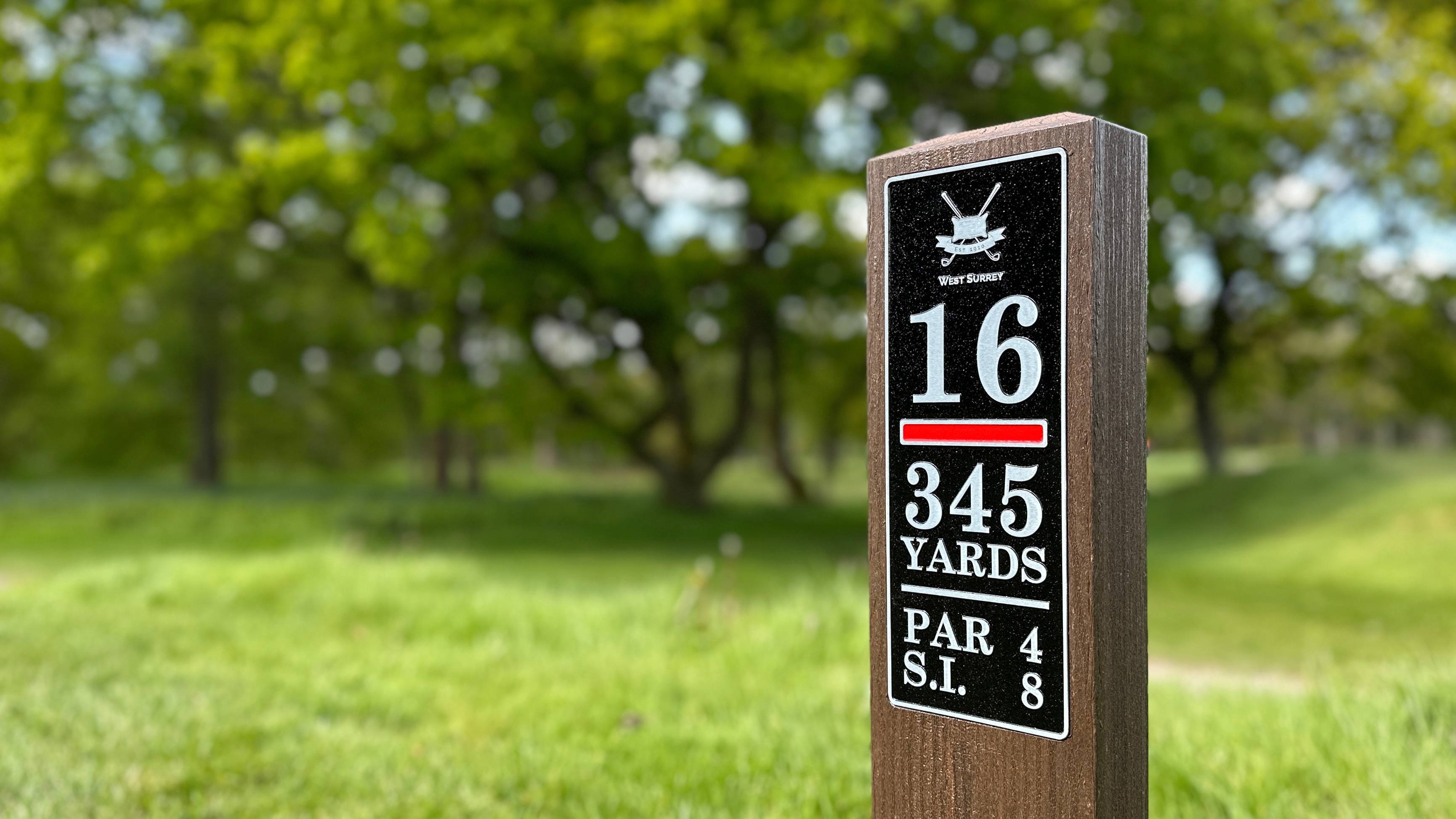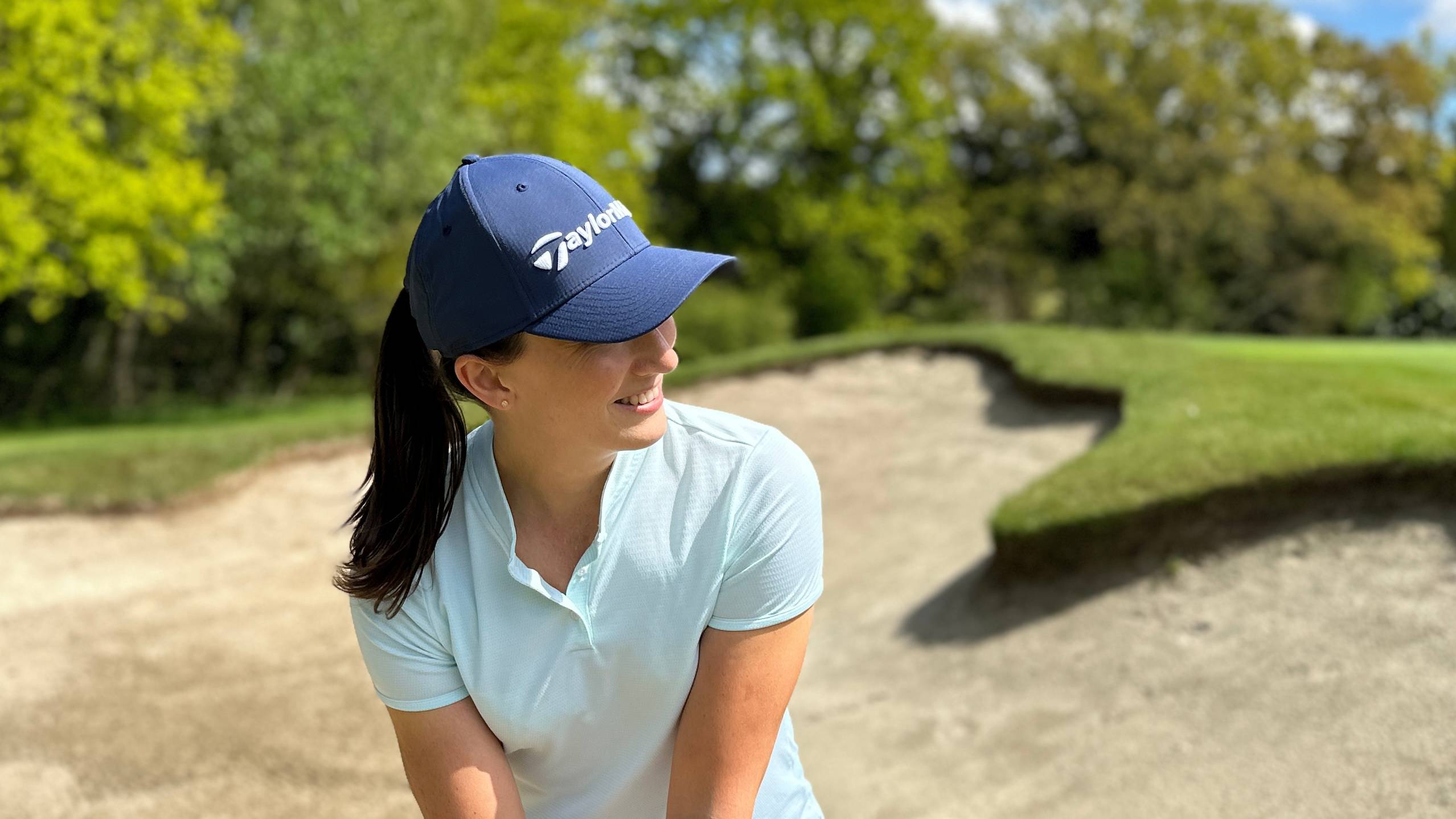
After Nelly Korda’s fifth win in a row at the Chevron Championship, matching the LPGA record of five wins in five starts, Nelly put her success down to staying in the moment – sticking to one shot at a time – especially when the nerves were creeping in.
In an interview after her win, Nelly shared how she struggled with doubt in her 2021 season, becoming distracted by the outside voices that questioned if she would ever win another Major and go on to fulfil the potential that was thrust upon her at a young age.
This got me thinking about what we can learn from Nelly’s approach to dealing with doubt and staying in the moment when we’ve got a card in our hand, so we can close out our rounds in style rather than feel like we’ve let that score slip away…again.

When I reflect on what can throw us during a round, a handful of things come to mind – playing with distracting playing partners, hitting a shot that makes your shoulders drop, letting those negative thoughts creep in or making a decision that goes against your gut and leaves you wishing you had stuck to your guns.
And with 18 holes to play, the golf course is a magnet for mental gymnastics, with that doubt and those distractions doing their best to take us away from the moment and shot that matters most – the one right in front of us.
So how can we stay in the moment when we’re playing golf, so that we can have the best chance of not only enjoying ourselves whilst we’re out there but also playing to what feels like our potential? I’ve shared 5 tips that I hope will help with exactly that.

Trust The Work You’re Putting Into Your Practice
Do you ever find yourself standing over a shot that you’ve practised and instead of feeling excited because this is a shot you’ve practised…the fear kicks in. So rather than trust that you can play this shot and play it well, you gravitate to a “safer” option. One that you know won’t give you the same chances but because the voice of doubt has crept in, you talk yourself into. Only to wish you had backed yourself in the first place.
It’s in moments like that that trusting the work you’ve put in is key. That’s why you’re practising those shots because you know they can make a difference to your scores. Now, it’s time to trust that work when you’re standing over those shots on the course.
Create Your Own Bubble To Step Into Before Your Shot
Even though golf is an individual sport, we all know that our playing partners can influence our scores – by either helping you stay in your zone or constantly pulling you out of it.
That’s when staying in your own bubble can help you to focus on what’s in front of you. This isn’t to say that there’s no conversation in between shots but as you’re approaching your ball, imagine that you’re stepping into a bubble. And in that bubble is where you’re in the moment – focused solely on assessing your shot, choosing your target, picking your club and getting ready to hit the shot you’ve visualised.
This can be easier said than done – depending on how distracting your playing partners are – but if you can step into your own bubble before every shot, you’ll be focused on the shot ahead, rather than the words being said around you.

Talk Through Decisions With Your Inner Caddie
Building on from stepping into your own bubble, one thing I’ve started doing is imagining I am my own caddie…bare with me. When you watch the pros, do you notice the conversation they have with their caddie right before they take their shot? They talk about the distance they need to carry to take any trouble out of play, what the wind is doing and how it might affect their shot and what their specific target is. And of course, what their club selection is, which I’ve spotted is always confidently confirmed by the caddie with something like “that’s the club” or “I love that”.
So to help me make better decisions on the course and commit to my choices, I’ve started following the same trail of thought with my inner caddie. I’m also doing this so that when I’m in my before-shot bubble, my mind is working through those questions rather than worrying about what might go wrong.

Block Negative Thoughts With Positive Ones
One of the biggest challenges in golf is staying positive when we have so much time to think. It’s one of the only sports (that I can think of) where your mind has the space to wander, rather than have to be in the moment because you’re reacting to what’s happening.
That’s why it’s crucial that we do our best to focus on the positive rather than let our minds fall to the fear of what might go wrong. A way to do this is thought swapping. I might have made that name up, so let me elaborate…
Have you ever tried thinking of two things at once? For example, try saying the words “putting” and “driving” at the same time in your mind. It’s impossible or at least incredibly difficult. And rather than both thoughts being heard at the same time, one overrides the other.
That’s the power of “thought swapping” – changing one thought for another when the original thought isn’t helpful in that moment.
For example, when I’m standing in a bunker and I catch myself thinking “oh gosh…”, I’ll swap that thought for “I’m going to land this there” or when I find myself standing on the 18th tee box and I start internally muttering “please don’t mess this up”, I’ll swap that thought for “I’ve got this”.

Focus On Mini Challenges Within The Round
The idea of staying focused for a full round can feel overwhelming. It’s easy to get ahead of yourself with 18 holes to play or fixate on how that first hole blew the start you hoped for. And within that, there’s so many parts of the game that we can subconsciously put pressure on coming together – our driving, approach shots, short game, bunker play, putting…
That’s why I break the bigger quest of my round down into mini challenges that focus on what I’ve been working on in my practice, so that I can measure my progress and find something positive to pull out, even if another part of my game decided not to show up that day.
For example, one course challenge that I play (and share in my Practice Plan) is called Two Putt Tops and my goal is to two putt maximum on every hole. I know that if I can do that, I’m not leaking too many shots to the course and my “bad” holes will (typically) be a better score than if I’ve compounded any errors with a pesky three putt.
I’ve found that having a mini challenge to focus on over the 18 holes helps me to stay in the moment more often because no matter how my score is going, I want to do well with that challenge. And I know that doing so will have a positive ripple effect through my round.
I’ve shared Course Challenges to help you stay focused when you play, from Two Putt Tops to To The Target and more in my Practice Plan. So if you’re craving a breakthrough with your golf, get your plan today with the code golfmonthly to save 20%.







